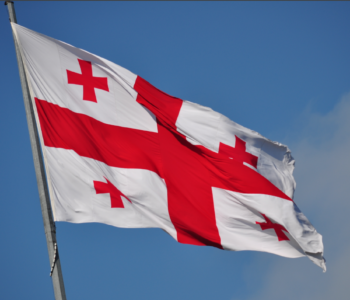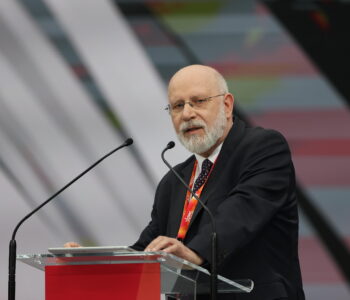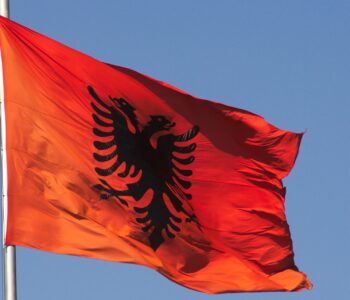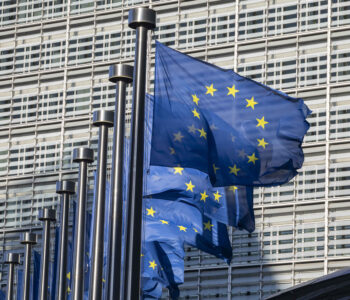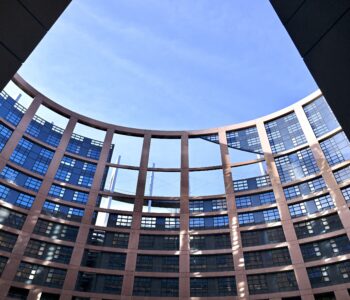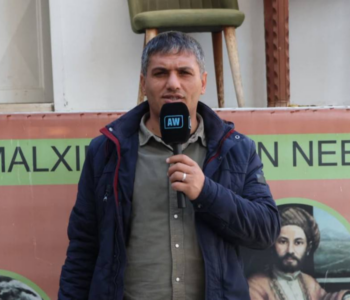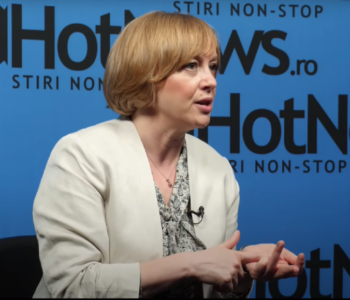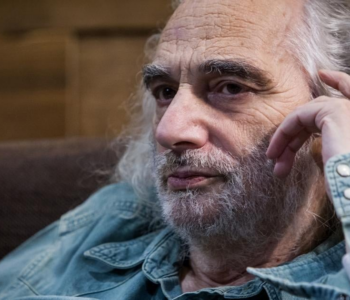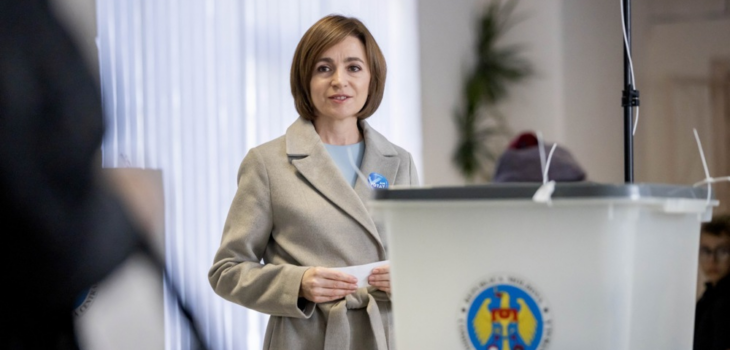
Moldova: fears for press freedom in case of pro-Russian victory
Journalists warn significant backsliding possible after elections on September 28.
On June 23 to 27, the International Press Institute (IPI), representing the Media Freedom Rapid Response (MFRR) consortium, conducted a press freedom mission to the Republic of Moldova, to assess the situation of press freedom in the country ahead of crucial parliamentary elections scheduled for September 28.
17.09.2025
Multiple interviews with journalists, press freedom activists and self-regulatory bodies painted a picture of a media sector concerned about the future of independent journalism in the country ahead of the closely watched election.
While the overall climate for free and independent journalism remains relatively healthy compared to other EU candidate countries in the region, local divergences remain acute and all media face intense challenges to their financial viability.
Moldova – still a safe haven for independent journalism?
IPI’s interviews with stakeholders in Moldova overall confirmed data documented on the MFRR’s Mapping Media Freedom (MapMF) platform. These alerts have shown that since regular monitoring started in June 2022, when Moldova became a candidate for entry into the European Union, the country enjoys a relatively healthy media freedom climate.
As of September 2025, the MapMF platform has recorded 81 press freedom violations in Moldova. The majority of these incidents were insults or harassment of journalists by politicians, either in person or online, as well as intimidation of journalists at protests.
Serious cases of physical violence against media workers were not recorded and the overall legal framework of Moldova ensures appropriate conditions for the exercise of independent journalism.
This includes media access to publicly available information, the right to freely report from protests and other events of public interest, as well as, overall, open media access to politicians and government officials.
Large-scale cyber attacks against media, which have become increasingly frequent in Europe, and especially in neighbouring Ukraine, have not been identified as a major risk in Moldova.
However, in a landscape characterised by the division between pro-Western and pro-Russian politics, journalists face challenges in navigating polarised news environments and disinformation. The fragility of the media and public interest journalism due to the small advertising market is particularly concerning.
These issues are deepened by acute regional differences within Moldova. While the media environment is overall healthy in most of the country, in Transnistria, a region occupied by pro-Russian military forces, no media are allowed to freely function. Issues also persist in the largely Russian-speaking regions of Gagauzia and Taraclia, where independent journalists report being regularly intimidated by local authorities and the population.
Attacks on the rise as geopolitical situation becomes more tense
The number of media freedom violations in Moldova has gradually increased since monitoring began in June 2022: 10 cases were recorded by the MapMF platform between April and December 2022, in comparison to 19 in 2023, 24 in 2024, and 25 in just the first eight months of 2025.
Journalists and press freedom organizations expressed particular concern about waves of attacks which have, over the past year, coincided with periods of high political tensions. The first months of 2025, for instance, saw a heavy backlash against journalists and media following the decision by the Trump administration to significantly cut U.S. foreign aid, including programmes which supported independent media.
In response, a number of actors, including pro-Russian politicians and private individuals, the latter especially in the online space, engaged in discrediting and intimidating behavior targeting media who previously received grant support from the United States.
While the drastic drop in U.S. funding greatly impacted Moldovan media, newsrooms have been able to adapt, with media representatives reporting that mass closures of media outlets have not been observed over the past year. Some journalists, however, expressed the fear that should the current level of support from European sources not continue, the risks of closure would become especially high for regional media.
Government approach to media freedom
While both MapMF data and interviews with Moldovan journalists have pointed to a relatively healthy level of media freedom in the country, concerns remain with regards to recent legal and regulatory decisions targeting media houses owned by pro-Russian oligarchs.
Central here is the mandate of Moldova’s strategic investment council (Council for the Examination of Investments of Importance to State Security). The government body was set up to help protect national security in the context of Russia’s invasion of neighbouring Ukraine and has over the past year made decisions on suspending the broadcasting of TV channels accused of distributing Russian propaganda.
While interviewees did not question in principle the legitimacy of the suspension of media outlets for the dissemination of pro-Russian propaganda, worries were expressed about a lack of sufficient due process in the adoption of these decisions, and the lack of transparency in the official justification for broadcast license suspensions. In fact, it was unclear whether there was any procedure in place at all for such situations, or what criteria were used to issue decisions on broadcast suspension.
Certain media representatives also expressed worries about the level of self-censorship in outlets which closely align editorially with the current government’s policies on pursuing European integration and denouncing Russia’s war in Ukraine. Some interviewees said that “a sort of symbiosis” exists between some pro-European media and the current government, which has led to negative perceptions about the editorial independence of these media which, in turn, leads to lower levels of public trust.
As a result, Moldovans have increasingly turned to social media in search of alternative voices or watchdog reporting. However, this has also increased exposure to pro-Russian disinformation and other forms of biased or unreliable news sources.
Efforts by the current government to counter these tendencies by building a national strategic communications (stratcom) office aiming to combat Russian disinformation, were assessed by many media stakeholders as largely ineffective.
Efforts to counter falling levels of trust in media, as well as Russian disinformation operations particularly during elections, are also undermined by low levels of media literacy in Moldova, leaving Moldova’s citizens particularly exposed.
All media stakeholders interviewed highlighted the serious risks created by Russian disinformation, arguing that Russian sources which attempt to discredit democratic, human rights and pro-EU values are able to mobilise significant financial resources, making the task of reaching local populations even more difficult for independent media.
Worries surrounding the outcome of the parliamentary election
The campaign preceding Moldova’s upcoming parliamentary elections in September 2025 included numerous instances in which journalists were dragged into the political contest between pro-European and pro-Russian forces, with politicians and protesters especially intimidating journalists who were carrying out reporting work.
Civil society organizations, self-regulatory bodies and journalists interviewed by IPI in Moldova also stressed the potential risks linked to the possible emergence of a pro-Russian government following the elections.
A proposal to introduce a “foreign agent” law in Moldova, similar to the one adopted in Russia, and more recently in Georgia, was even filed in parliament in April 2025, with the support of the Block of Communists and Socialists (BCS).
While this political group currently does not have a parliamentary majority, many journalists fear that pro-Russian parties could eventually approve such legislation and threaten the future of media which receive foreign funding.
Some journalists even discussed plans to relocate outside the country in the event of the victory of pro-Russian parties, noting that plans to work in exile were already explored following the start of Russia’s full-scale invasion of Ukraine in 2022.
Other interlocutors, however, expressed doubts that a pro-Russian government would introduce restrictive “foreign agent” legislation. They pointed out that a foreign agent law would also affect many pro-Russian media, who rely on funding from Russia or other foreign sources.
Other fears of journalists surrounding a possible victory of pro-Russian groups include restricted access to information of public interest, limited access to press conferences for critical and independent media, as well as the possible misuse of spyware and other surveillance tools against journalists.
Transnistria and Gagauzia
While the media freedom situation in Moldova remains stable overall, this situation is very different in the region of Transnistria, which remains outside the control of the government in Chișinău. Inside Transnistria, independent reporting critical of the pro-Russian authorities does not exist. Journalists from other parts of Moldova cannot freely travel to the region to report. The arrest of TV8 correspondent Viorica Tataru, as well as more recent cases, testify to the risks of exercising independent journalism in Transnistria.
As reported by journalists who cover Transnistria and the bordering regions, reporting trips to the territory are complex operations conducted undercover, which at times leads to detention by the authorities. While to date all journalists detained in such circumstances were promptly released following the intervention of the Moldovan government or foreign embassies in Chișinău, this situation still creates high-risk conditions for journalists seeking to report from Transnistria.
Issues also persist in Moldova’s southern region of Gagauzia, which is under the control of the central government but enjoys a wide degree of autonomy. In Gagauzia, according to data published on the MapMF platform, journalists are regularly intimidated and harassed for their work, to a greater degree than in other regions of the country. While Gagauzia only comprises approximately five percent of Moldova’s population of around two million, close to one-third of all MapMF alerts registered in Moldova are directly linked to Gagauzia.
Equally important, independent journalists carry out their duties in a climate of hostility from a majority of the local population, which has traditionally elected pro-Russian parties.
Similar issues also persist in Taraclia, a region populated mainly by representatives of Moldova’s Bulgarian ethnic minority. In Taraclia, journalists face a situation similar to Gagauzia. Moreover, local journalists, reporting on their communities, can be exposed to greater risks of threats and intimidation as they are easier to identify and locate.
Conclusion
Overall, IPI’s mission to Moldova confirmed the situation depicted in data collected by the MFRR consortium since 2022, which showed a relatively healthy level of press freedom in the country despite its numerous challenges. While the situation remains overall positive, fears over the upcoming election have revealed the fragility of media freedoms in Moldova.
Serious issues remain with regards to Moldova’s vulnerability in the face of Russian propaganda and disinformation campaigns. The fear expressed by some interviewees regarding the possible need to relocate independent media outside of Moldova, if pro-Russian parties obtain a majority in parliament in upcoming elections, is worrying in the context of the overall satisfactory situation of press freedom in the country today.
While the risk of Russian interference in Moldova was the greatest concern of interviewees, other long-present issues remain, such as the continued lack of even basic media freedom in Transnistria, and the continued intimidation of journalists in regions such as Gagauzia and Taraclia.
All in all, Moldova’s vulnerable position shows the need for additional support for the country’s vital independent media sector, the situation of which has become particularly unstable as a result of the Trump administration’s decision to terminate development aid programmes worldwide.
While the climate for media freedom in Moldova is positive overall, the situation remains fragile and the future of journalism could hinge dramatically on the outcome of the upcoming elections.
This statement was coordinated by IPI as part of the Media Freedom Rapid Response (MFRR), a Europe-wide mechanism which tracks, monitors and responds to violations of press and media freedom in EU Member States and Candidate Countries.

